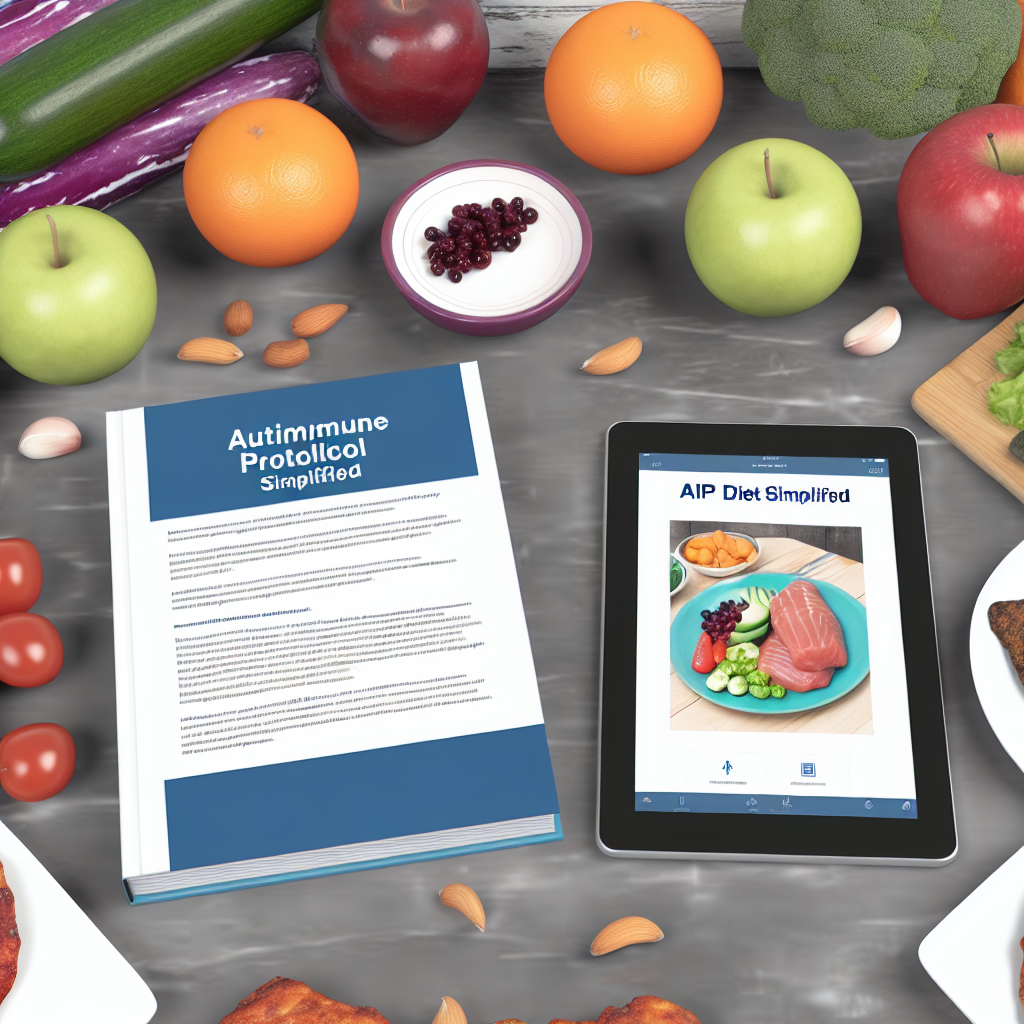Autoimmune Protocol – AIP Diet Simplified
Introduction
The prevalence of autoimmune diseases has significantly increased in recent years, now affecting millions globally. Conditions such as rheumatoid arthritis, Hashimoto’s thyroiditis, lupus, and inflammatory bowel diseases (IBD) share common traits like systemic inflammation and immune system dysregulation. Traditional treatments tend to focus on suppressing immune responses using medications, but growing interest in holistic approaches has led many to explore the Autoimmune Protocol (AIP) diet.
The AIP is a science-backed, elimination and reintroduction dietary strategy designed to reduce inflammation, promote gut healing, and support immune balance. Originating from the principles of the Paleolithic (Paleo) diet, the AIP takes a more targeted approach by eliminating suspect food triggers and reintroducing them gradually only after achieving digestive stability.
Unlike short-term fad diets, the AIP is a sustainable lifestyle intervention. It emphasizes consuming nutrient-dense, anti-inflammatory foods such as wild-caught fish, organ meats, fermented vegetables, bone broth, and leafy greens. Foods initially eliminated include grains, legumes, dairy, eggs, nightshades, refined sugars, and seed oils.
The goal is not just symptom reduction but addressing potential root causes, especially those contributing to a compromised gut lining—a hallmark of intestinal permeability or “leaky gut”. Functional medicine links this gut dysfunction to autoimmune disease progression. By removing dietary irritants and emphasizing healing foods, AIP helps restore immune and gastrointestinal harmony.
Those who commit to AIP often report improved symptoms, better digestive health, enhanced energy levels, mental clarity, and, in some cases, a reduced need for medication. The protocol also encourages a comprehensive wellness approach that includes stress management, quality sleep, and gentle physical activity—factors that play key roles in immune modulation.
Using AIP as a foundation, individuals can better understand their food sensitivities, discover natural ways to manage their autoimmune conditions, and embrace a path of lasting healing and vitality.
Features: Scientific and Clinical Support for the AIP Diet
While robust, large-scale studies are still limited, early research and clinical feedback are offering credible evidence of the efficacy of the AIP diet. One notable study, published in the journal Inflammatory Bowel Diseases in 2017, examined 11 individuals with Crohn’s disease and ulcerative colitis who followed the AIP protocol. Over a six-week elimination and five-week maintenance phase, an impressive 73% of participants reached clinical remission by week six. These outcomes were validated by both subjective symptom tracking and objective inflammation markers, showcasing AIP’s potential to positively influence gut-driven autoimmune disorders. ([Source](https://pubmed.ncbi.nlm.nih.gov/28471751))
In addition, Dr. Sarah Ballantyne—one of the leading researchers in the AIP community—conducted a large-scale survey involving over 2,000 participants. Findings shared through her platform, [The Paleo Mom](https://www.thepaleomom.com/start-here/the-autoimmune-protocol), highlighted significant improvements in autoimmune symptoms, decreased reliance on NSAIDs, and improved overall quality of life. Although survey data has limitations, the size and consistency of responses reinforce AIP’s impact in real-world application.
Another layer of scientific support stems from studies on intestinal permeability. A key 2012 study published in Clinical Reviews in Allergy & Immunology detailed how disruptions in the gut barrier can let undigested food proteins and toxins enter the bloodstream, prompting immune attacks in genetically predisposed individuals. ([Study Link](https://pubmed.ncbi.nlm.nih.gov/22235283/)) AIP’s emphasis on healing foods like collagen-rich bone broth and fermented vegetables plays a central role in restoring gut lining integrity and microbial balance, addressing one significant root cause of autoimmunity.
Many AIP followers integrate lifestyle practices such as yoga, meditation, deep sleep hygiene, and light movement. These practices directly counter the physiological effects of chronic stress, a well-established trigger for immune flare-ups.
Institutions such as the [Scripps Institute](https://autoimmunewellness.com/aip-study-faqs) are actively partnering with AIP researchers to conduct further controlled trials exploring the role of diet in managing chronic illness. Future peer-reviewed studies will help bridge clinical gaps and elevate the AIP from a niche healing tool to a respected therapeutic intervention.
Conclusion
Managing autoimmune diseases can be daunting, particularly when conventional therapies focus only on symptom suppression. The Autoimmune Protocol (AIP) presents a practical and science-rooted approach to healing that emphasizes gut restoration, immune regulation, and inflammation reduction through targeted nutrition and lifestyle shifts.
By eliminating widespread dietary triggers and systematically reintroducing them, individuals gain insight into their unique tolerances, support better nutrient absorption, and regain control over their health journey. From improved digestion and mental clarity to reduced symptoms and medication dependence, AIP stands as a powerful form of nutritional healing—not just a diet, but a transformative wellness protocol.
As research validation increases and public awareness grows, the Autoimmune Protocol emerges as a frontrunner in the realm of natural autoimmune therapies, offering real hope for those seeking alternatives to pharmaceutical management.
Concise Summary
The Autoimmune Protocol (AIP) is a dietary and lifestyle intervention aimed at managing autoimmune diseases by reducing inflammation, promoting gut healing, and regulating immune responses. Rooted in Paleo principles, AIP eliminates potential trigger foods and reintroduces them gradually. Studies show promising outcomes, including improved symptoms and clinical remission in IBD patients. Supported by anecdotal and emerging scientific evidence, AIP emphasizes whole-food nutrition, stress management, and self-awareness. Though demanding, it offers a holistic path for those seeking natural and nutrient-based autoimmune management.
References
– [Efficacy of the Autoimmune Protocol Diet for Inflammatory Bowel Disease – Inflammatory Bowel Diseases Journal](https://pubmed.ncbi.nlm.nih.gov/28471751)
– [Leaky Gut and Autoimmune Diseases – Clinical Reviews in Allergy & Immunology](https://pubmed.ncbi.nlm.nih.gov/22235283)
– [Dr. Sarah Ballantyne’s Research – The Paleo Mom](https://www.thepaleomom.com/start-here/the-autoimmune-protocol)
– [Clinical Trial Partnership with the Scripps Institute – Autoimmune Wellness](https://autoimmunewellness.com/aip-study-faqs)

Dominic E. is a passionate filmmaker navigating the exciting intersection of art and science. By day, he delves into the complexities of the human body as a full-time medical writer, meticulously translating intricate medical concepts into accessible and engaging narratives. By night, he explores the boundless realm of cinematic storytelling, crafting narratives that evoke emotion and challenge perspectives.
Film Student and Full-time Medical Writer for ContentVendor.com




